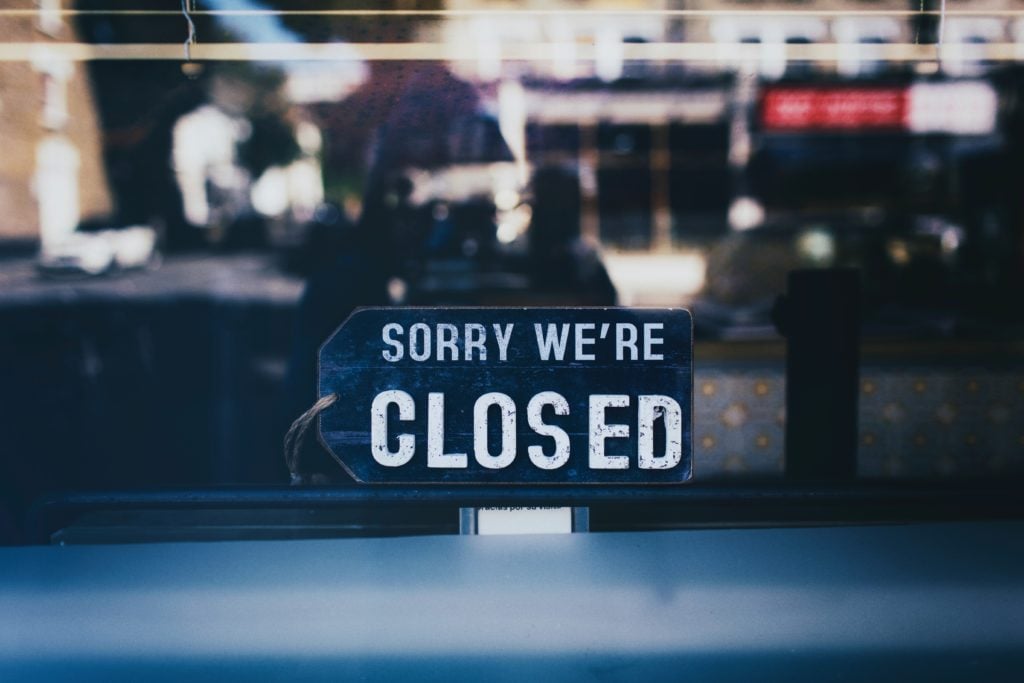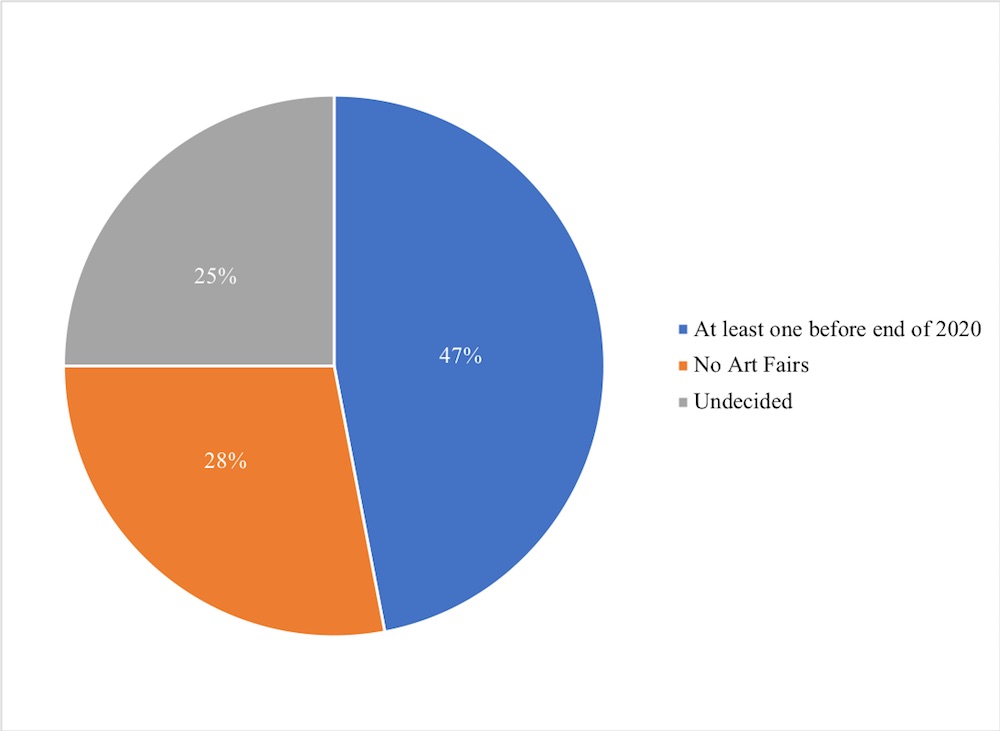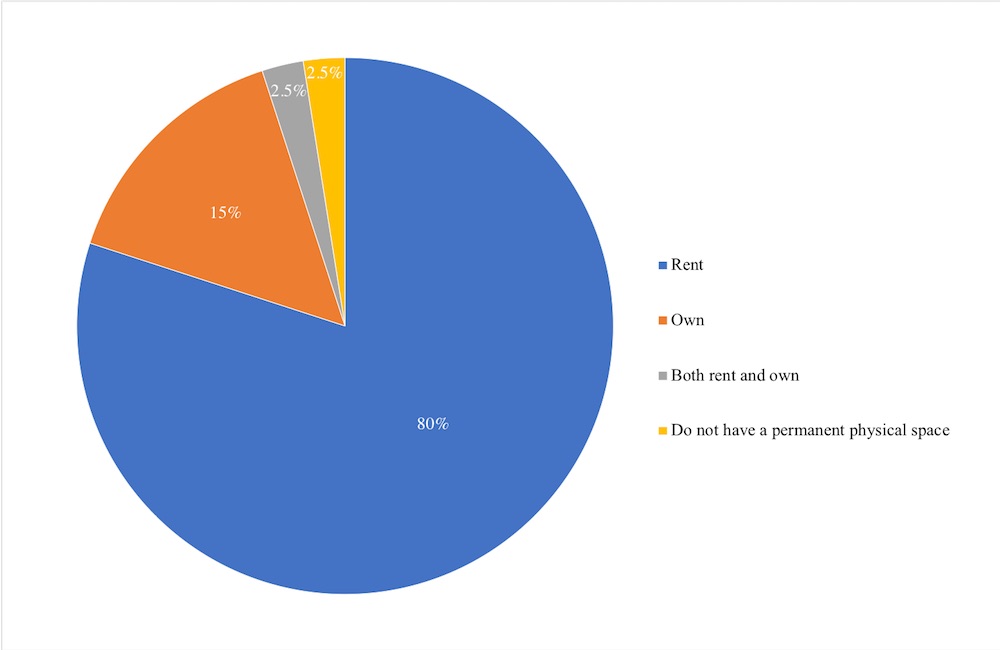Galleries
Just How Bad Has the Financial Fallout Been for US Galleries? A New Survey Crunches the Numbers—and They’re Bleak
Full-time unemployment hasn't dipped too dramatically, but galleries are bracing for dramatic losses this quarter.

Full-time unemployment hasn't dipped too dramatically, but galleries are bracing for dramatic losses this quarter.

by
Eileen Kinsella

While there is no question that the effect of the pandemic has been devastating for galleries (and small businesses everywhere), exact numbers about the extent of the damage have been hard to come by. But now, the results of a recent survey by the Art Dealers Association of America give some sense of the fallout.
The 168 galleries surveyed from across the US, between April 14 and May 4, projected a gross revenue loss of 73 percent in the second quarter of 2020. That’s on top of a 31 percent revenue loss in the first quarter of the year. While 85 percent of full-time gallery staff have retained their positions, 74 percent of regular independent contractors are no longer employed. About 10 percent of staff have been furloughed and a surprisingly small number—just five percent—have been laid off entirely.
About three-quarters of galleries that furloughed employees said they were continuing to provide some form of benefits to them, while 37 percent of galleries that laid off employees were still providing them some benefits.

Of the galleries surveyed, 28 percent said that they would not participate in any art fairs before the end of 2020, while 47 percent said they would participate in at least one. Source: Art Dealers Association of America
Not surprisingly, the unemployment numbers were far higher for contractors and freelancers: 82 percent of art handlers and installers were laid off or had contracts terminated. Other jobs that commonly fell into this category included accountants, conservators, curators, drivers, editors, servers, fair booth consultants, translators, and web developers.
And things could still get worse. Ten percent of respondents expected to lay off or furlough full-time employees and freelance or contract workers within the next 90 days. Just over half (53 percent) said they do not expect to make any more cuts in that time. (The remaining 37 percent said they didn’t know if they would make staff reductions.)
“While the survey is focused on near-term impact, the implications are far-reaching and long-term for art galleries and the even greater number of employees and artists they support, both financially and as key partners in fostering their practices and careers,” said the Art Dealers Association of America’s executive director, Maureen Bray, in a statement. “Such immediate and devastating revenue losses will undoubtedly have a ripple effect on these small businesses and the broader arts community for the next 12 to 18 months, if not longer, and it is still uncertain how long such losses may continue.”

Of the galleries that rent their spaces (80 percent), 52 percent reported that their landlord has allowed a delay or reduction in rent payments. Of those that have a mortgage, 14 percent reported lenience with their mortgage holder. Source: Art Dealers Association of America
The majority of responding galleries (78 percent) had applied for one of the government’s Paycheck Protection Program loans, which were instituted as part of the CARES relief act. Of those who applied, 76 percent received some response to their applications, while just 28 percent confirmed loan acceptance. Of those who did not apply, 37 percent said they plan to apply in the future, 30 percent were undecided, and 33 percent do not plan to apply.
In an effort to push ahead policy solutions, members of the Art Dealers Association have been advocating for the New York State Senate to pass Michael Gianaris’s proposed bill S8125A, which would provide rent and mortgage relief to galleries, as well as artists, freelancers, and contractors.